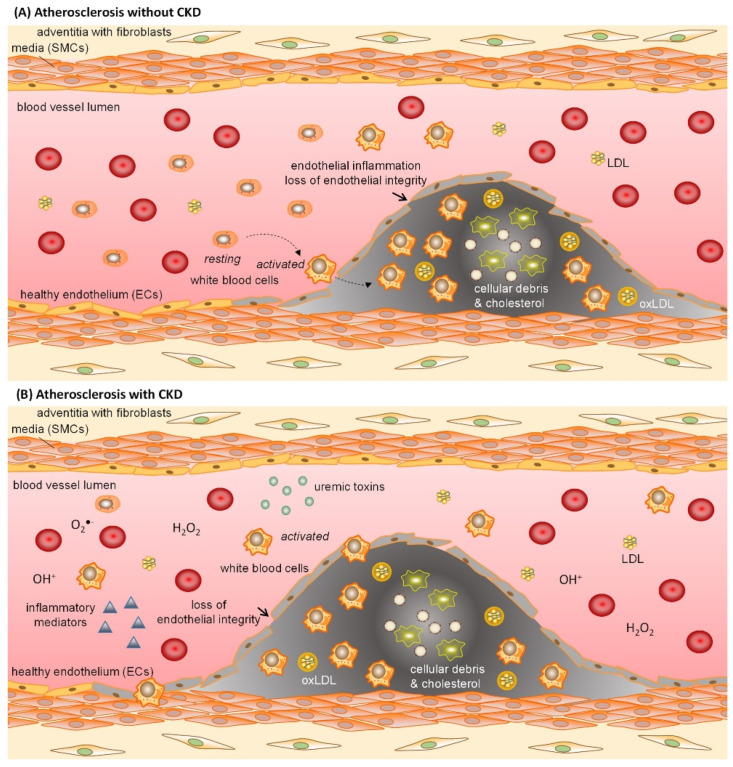Figure 1.
Endothelial inflammation and loss of endothelial integrity contribute to endothelial dysfunction and the formation of atherosclerotic lesions in the vessel wall. Atherosclerosis is characterized by endothelial inflammation and an increased vascular permeability. Inflamed endothelial cells secrete chemokines that recruit white blood cells, which migrate through the dysfunctional endothelial barrier into the vessel wall. Moreover, LDL migrates into the vessel wall where it is oxidized to oxLDL (A). In patients with CKD, the process of atherosclerotic lesion formation is advanced because of CKD-associated factors such as systemic chronic low-grade inflammation, increased markers of oxidative stress and lipoprotein oxidation, as well as the accumulation of uremic toxins, all promoting damage to the vessel wall (B). ECs = endothelial cells; LDL = low density lipoprotein; oxLDL = oxidized LDL; SMCs = smooth muscle cells.

